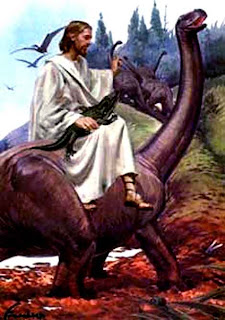
It is an odd thing that evolution is disputed so much. Physics and chemistry do not have nearly so much dissent, especially from a religious or organized group. Astronomy and geology have had some problems, but they have been overlooked by the masses. For instance, the Coperinican heliocentric solar system spat on the belief that the Earth is the center of the Universe. In geology, it is not hotly debated that the formation of canyons and mountains must take place on the scale of millions of years. Perhaps it is because those things seem so distance, impersonal, and dead to most people to be relevant. Biology, on the other hand, takes the brunt of the populace's largely misinformed critiques.
.
The reason why, as I alluded to above, is that biology is something personal both to the individual and to humans as living beings. Sure, most people have a general idea about how the human body works, with basic structures, systems, and so forth. However, that limited knowledge, without thorough, or sometimes even remedial, knowledge of the mechanisms and history behind them adds a sense of mystery and awe. That cannot be argued with. Biologists working for decades are probably still as enraptured with life as ever. The layman, however, seems to have a special, dual-pronged belief about the human body that refutes evolution before any scientist can explain. The first is the religiosity of the United States, in which includes the tenet that people are on a special level compared to the rest of the material of the universe. We are too complex, they might say, to have not been created by an outside force. The argument from incredulity is the basis for the intelligent design movement, or as some have called it, 'creationism dressed up in a cheap tuxedo.'
.
The second idea about life is almost opposite to the first. It is that life is simple. Everyone has seen nature shows and watches Discovery Channel and fancies themselves knowledgeable on life. However, many creationists and intelligent design proponents laugh at the idea of Australopithecus, jesting that it appears to be some kind of joke based on the old 'Planet of the Apes' movies. Obviously, they say, this is a farce. They think they know how evolution occurs - which is usually completely random events in a progressive fashion, as they would understand it. Based on that limited, erroneous information, of course evolution is a fraud. The problem is that it is so much more complex than that. The genetic basis of mutations in the chromosome and genome up to climatic changes and ecology are all crucial to evolutionary theory.
.
Personal incredulity, therefore, actually has two bases. The first is that the body is too complex to have come about naturally, invoking a deity. The second is that life is so simple that anyone can understand it, making everyone a personal authority on it. It cannot be overstated that evolution by natural selection can be simply stated as genetic change in a population over time, but there are many, many facets of evolutionary study that such a maxim barely does it justice. The fact of the matter is that evolution is supported so thoroughly by science that it should not even be a question. Sure, there is debate about punctuated equilibrium versus gradualism, but that is one aspect of a massively supported theory.
.
Consider string theory, a hypothesis in physics which I will not even pretend to understand. There is no public outcry, however, about string theory appearing in school texts. Perhaps it is because it does not speak to the very humanity of the individual that he or she thinks they understand. It certainly does not include any tenets of religion, which may be why evolution is a prime target. Both are complex theories. The problem is with perceived understanding, which the general population claims to have much of regarding biology and little regarding physics. In reality, both are probably rather low. A little less arrogant anthrocentrism may go far in public understanding of evolution, though it will be more difficult to convince people that they may know less than they really do on their own histories, complexities, and indeed life as a whole. Evolution is not as simple as they think.

No comments:
Post a Comment